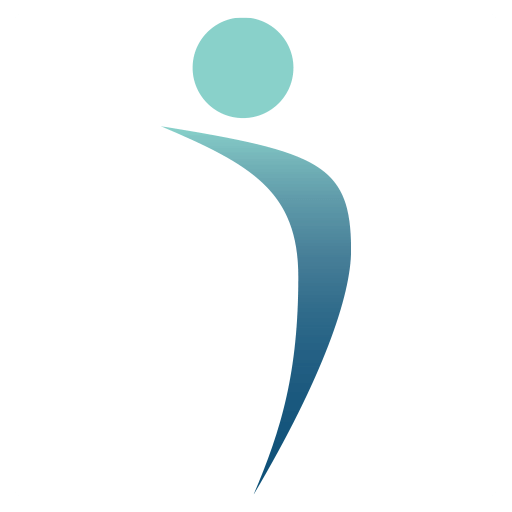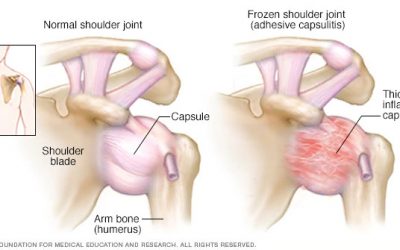Chest Physiotherapy For Chronic Obstructive Pulmonary Disease, COPD
What Is Chronic Obstructive Pulmonary Disease (COPD)?
Chronic Obstructive Pulmonary Disease (or commonly known as COPD) is a chronic inflammatory lung disease that obstructs airflow from the lungs. It is primarily caused by long-term exposure to irritating gases or particulate matter, most often from cigarette smoke, environmental pollutants or in some cases genetics. COPD is a progressive disease, meaning it typically worsens over time. COPD commonly can be characterised as Chronic Bronchitis or Emphysema.
How Does Chest Physiotherapy Help People With COPD?
Chest physiotherapy is a type of respiratory treatment that can help to clear mucus and improve breathing in people with Chronic Obstructive Pulmonary Disease. You can learn more about how chest physiotherapy works and a more detailed explanation of general benefits with chest physio.
For COPD, chest physiotherapy can be helpful by:
- Clearing Secretions: Techniques like postural drainage, percussion, and vibration help to mobilize and remove mucus from the lungs, reducing the risk of infections and improving airflow
- Improving Ventilation: Breathing exercises, such as diaphragmatic and pursed-lip breathing, enhance the efficiency of the respiratory muscles and promote better oxygen exchange
- Increasing Lung Volume: Techniques like inspiratory muscle training strengthen the muscles involved in breathing, increasing lung capacity and reducing breathlessness
- Reducing Airway Obstruction: Airway clearance techniques help in loosening and clearing mucus, preventing blockage in the airways
Techniques Used in Chest Physiotherapy for COPD
- Postural Drainage: Patients are positioned in ways that use gravity to assist in draining mucus from different parts of the lungs. Positions are changed every few minutes to target various lung segments
- Percussion (Clapping): The therapist uses cupped hands to rhythmically clap the chest wall, creating vibrations that loosen mucus. This is usually performed over a thin layer of clothing or a towel
- Vibration: Gentle vibrations are applied to the chest using the hands or a mechanical device during exhalation to help move mucus towards the central airways for easier expulsion
- Breathing Exercises:
- Diaphragmatic Breathing: Focuses on using the diaphragm rather than the chest muscles, promoting deeper and more efficient breaths
- Pursed-Lip Breathing: Helps to maintain open airways by creating back pressure, making it easier to breathe out fully and reduce breathlessness
- Active Cycle of Breathing Techniques (ACBT): A combination of breathing control, thoracic expansion exercises, and forced expiratory techniques (huffing) to mobilize and clear secretions
- Positive Expiratory Pressure (PEP) Therapy: Using a PEP device, the patient exhales against resistance, which helps to keep the airways open and move mucus towards the larger airways
- Incentive Spirometry: Patients use a spirometer to take slow, deep breaths, which helps to improve lung function and prevent complications like atelectasis
- Flutter Valve Therapy: A handheld device that produces vibrations in the airways during exhalation, helping to loosen mucus and make it easier to cough up
Who Can Perform Chest Physiotherapy?
Chest physiotherapy can be performed by a qualified chest physiotherapist who has been trained in the techniques. Inspire Healthcare can help with NDIS Physiotherapists in Sydney or a Physiotherapists in Melbourne.
If you are having chest physiotherapy performed by a healthcare professional, they will typically follow these steps:
- Assess your breathing and mucus production
- Position you in a way that will help to drain mucus from your lungs
- Use percussion and vibration to loosen mucus
- Instruct you on coughing exercises
What Are The Risks Of Chest Physiotherapy?
The risks of chest physiotherapy are generally minor and include:
- Bruising
- Skin irritation
- Chest pain
- Nausea
It’s important to consult a qualified healthcare professional and avoid any major DIY physio treatments at home to minimise risk. It’s also important to be honest and transparent with your physiotherapist if you have any underlying health conditions so they can advise on the best type of treatments for you.
Booking a Physiotherapy Appointment
Inspire Healthcare are a multi-disciplinary professional healthcare agency, book an appointment with a mobile NDIS Physiotherapist in Sydney or a Physiotherapist in Melbourne.
Author
-

Guyver Mac
Managing Director & Principal PhysiotherapistGuyver specialises in gerontology and neurological physiotherapy, and has been working with NDIS since 2017 and practicing physiotherapy since 2015. He excels in treating conditions like Multiple Sclerosis (MS), stroke, neurological conditions, and global developmental delay. One of Guyver's favourite career moments as a physio is helping an Inspire Healthcare client with Multiple Sclerosis walk his daughter down the aisle at her wedding. Outside of work, Guyver enjoys going to the gym, swimming, and watching rugby league.

